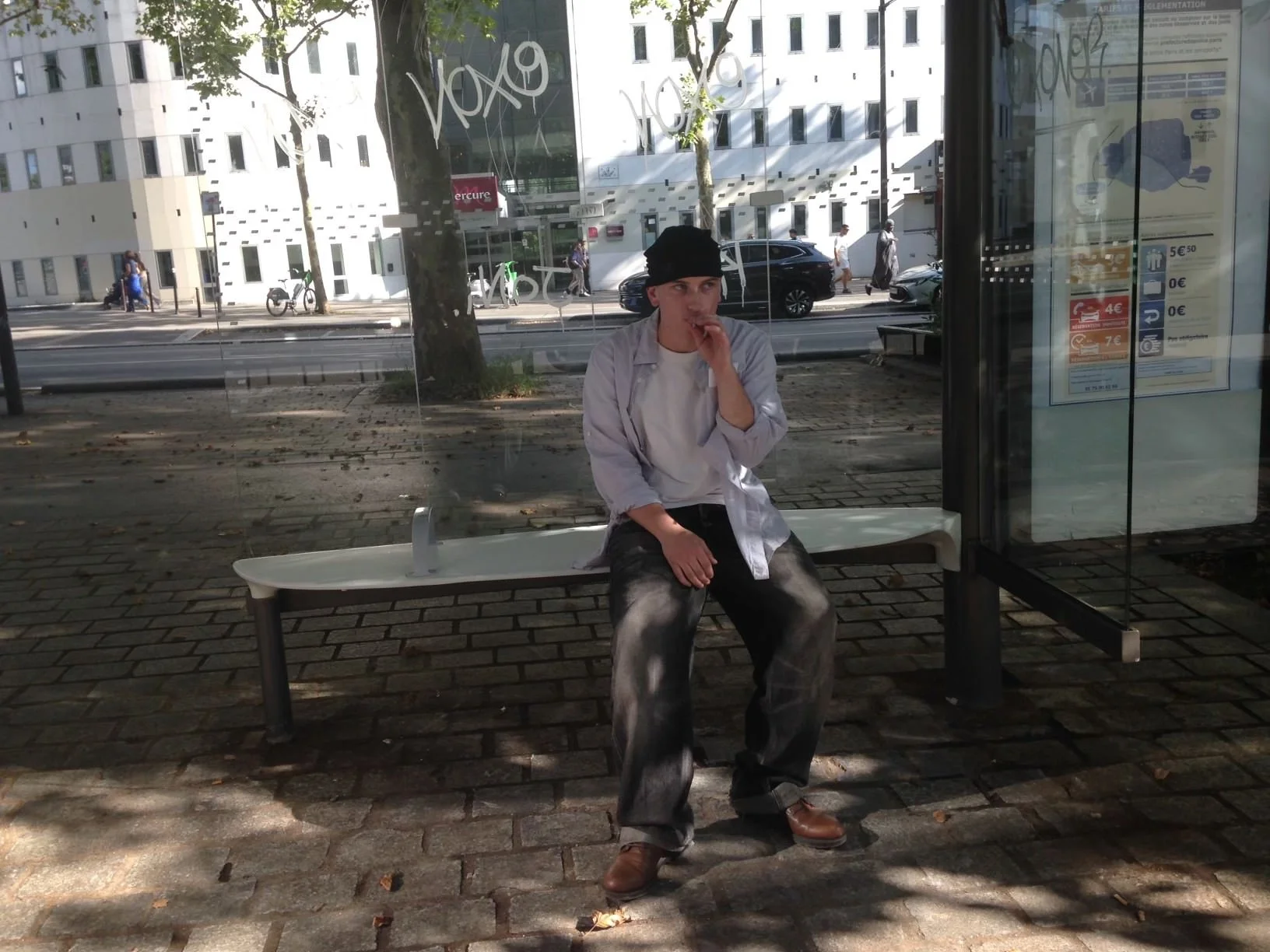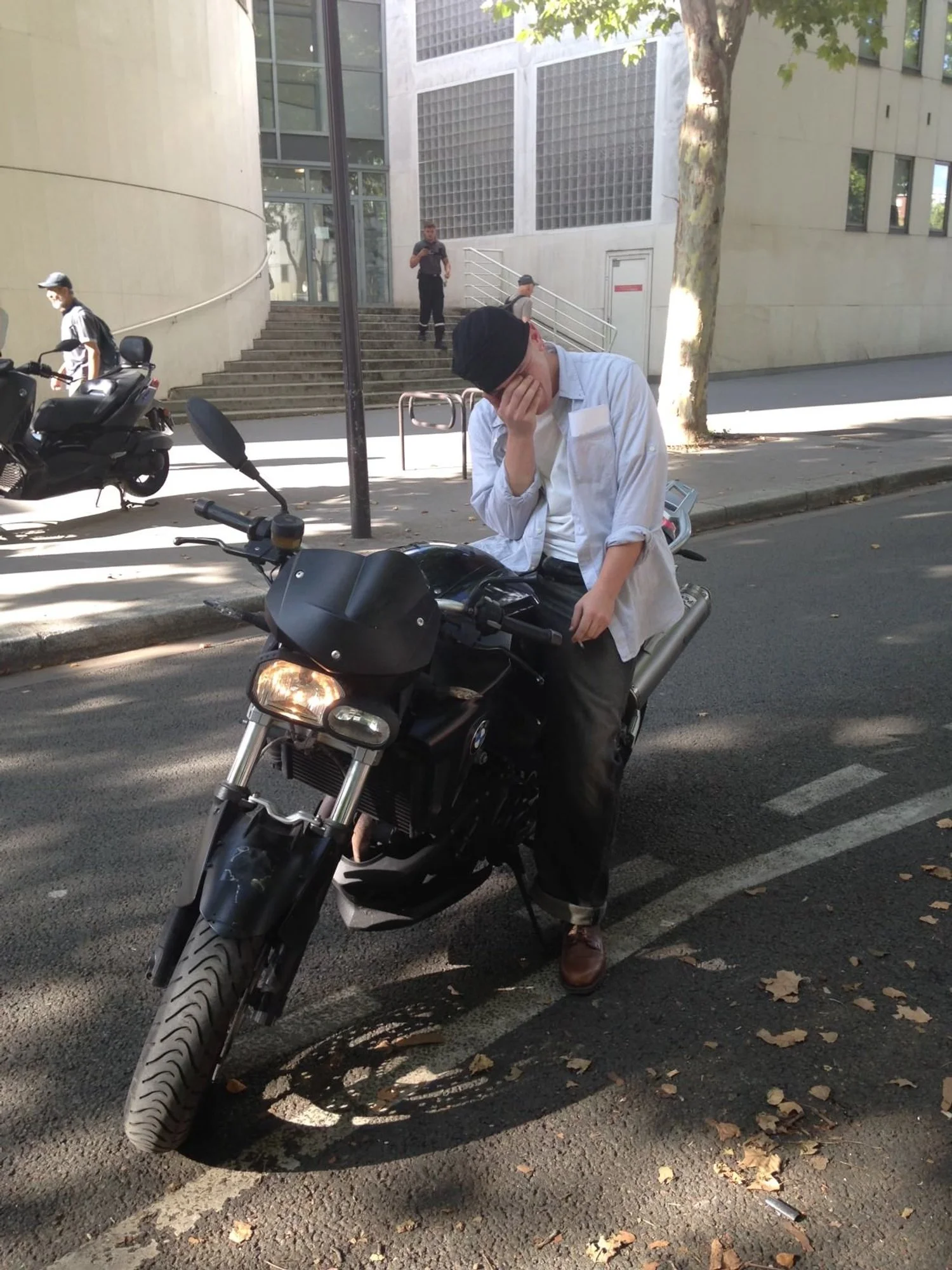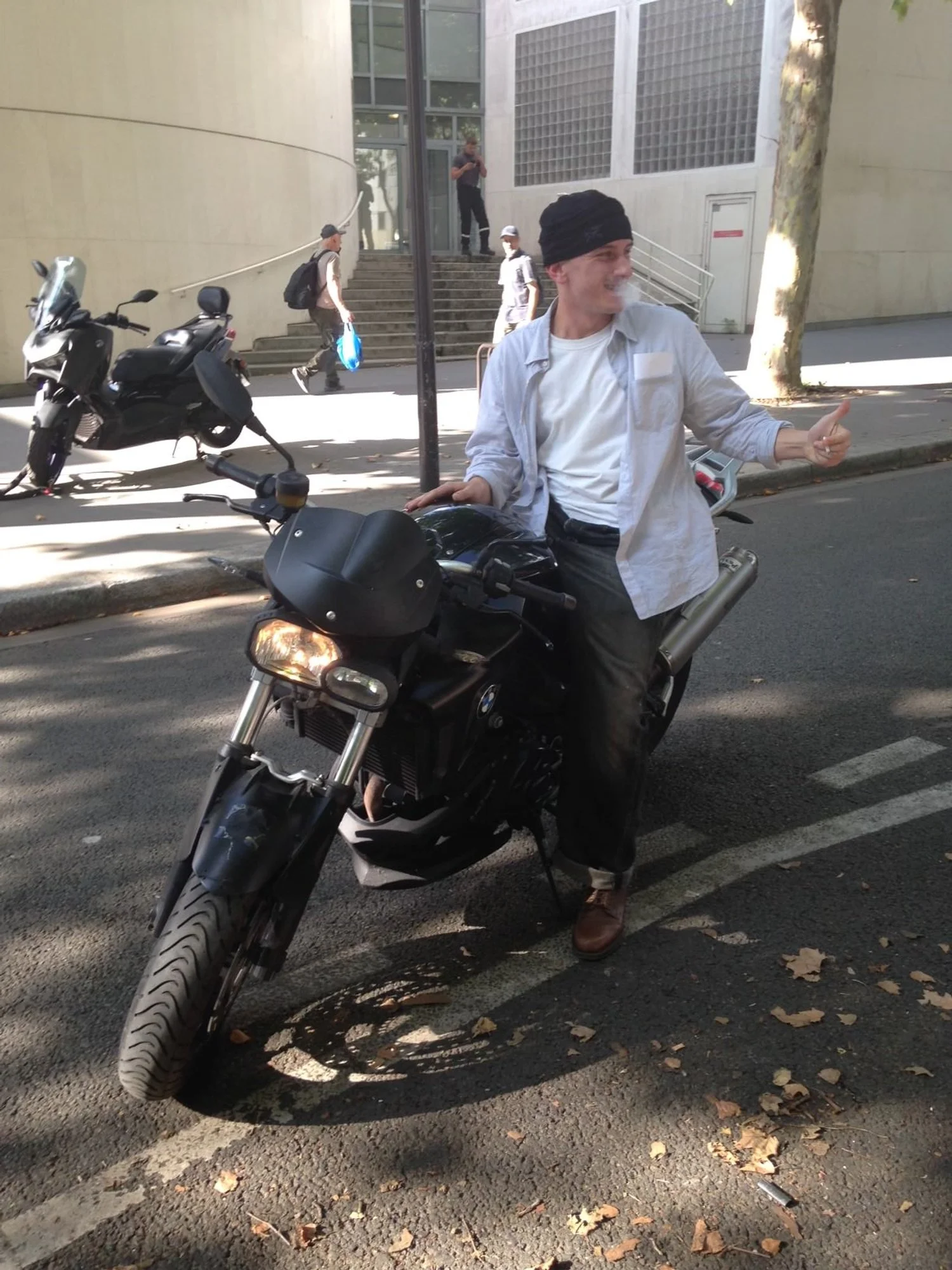DEER PARK

Photos by Veronica Alemu for Church Electronic, 7.25.2025





The Singular World of
Deer Park
By Katie Li
August 25th 2025
His music lingers somewhere in that formless, hazy zone—too nondescript to place exactly, yet with a palette so steeped in UK rap cadences and Dean Blunt-esque hypnagogic pop that many assume he’s British. There’s hints from Scandinavia to the Internet with his earliest tracks surveying Nordic cloud rap and pandemic-born glitchcore hyperpop. But the truest way to describe Deer Park might be simpler. It’s music built for the liminal spaces that exist more in your memory than in reality. A sound familiar but just unintelligible enough to feel distant, echoing through some vast and endless hallway of backrooms that never really fully resolves.
Somehow, it’s still deeply moving: tearjerking in complete opposition to the typical sterility of those empty, uncanny areas. Andy Santella—the name behind Deer Park—envisions something different: “a train ride [...] looking out the window.” And while a train is not exactly the poster child of liminality, it's similarly transitional: somewhere between where you are and where you need to be, somewhere most of us have some dramatic attachment to in our own, distinct ways. They’re where we’re supposed to detach but, instead, find our boredom forcing us to either wallow or romanticize our lives; and he agrees, sharing that it’s where music “hits the hardest” for him. Such is the character of Deer Park’s music: emotional yet devoid, intimate yet fading.
While seemingly birthed of this anonymous musical world he’s built, Deer Park is both unexpectedly and sensibly native to New York City; while America’s truest train epicenter, its system is…probably not the scenery imagined by his ambient guitar riffs and classical orchestral compositions. Instead, the City’s influences on him are mostly rooted in an early proximity to its diverse musical scenes: “I would go to punk shows a lot, that kind of thing. And just kind of seeing live music over the years, my taste developed.” Beyond the city’s underground, Santella specifies 3 other distinct influences on his eclectic musical palette—at its purest display in his ambient NTS Radio DJ set, spinning My Bloody Valentine to frequent collaborator Fakemink:
His mother and Church – where he first actively listened to music, often the sounds of his mother’s voice and violin.
His father – slowcore and ‘90s indie records.
SoundCloud – Cloud rap and its blend of ambient beats with slow, intentionally detached flow (think early Yung Lean).
Bard’s musical college – a love for upstate New York and where he truly began making music.
London – “the coolest city for music right now, regardless of genre.”
Yet while Deer Park nods to these formative influences, he never mirrors them directly. There’s none of punk’s characteristic thrashiness, nor the emotive, vocal-driven intensity of his childhood favorite, Guided By Voices. And while it’s easy to be fooled by his often lulling tracks—a perfect counter to overstimulation and the hearing-risking harshness of much of the rest of the electronic and rap underground—it’s equally as expressive. Where most of his musical influences tell specific stories, whether soul-crushing (“And me I am your dagger, You know I am your wound,” shoutout Slowdive) or vengeful, Deer Park’s emphasis is rather on mood, often clocked in a nostalgia. And, even if you manage to decipher the words behind his obscured, monotone, and heavily reverbed talk-singing, they rarely land as literal meaning. Not many of us have ‘drowned in blood in the basement of a castle,’ but it’s so uber-specific that it feels relatable; inexplicably connected to the way Crystal feels like the faintly improved mood of the morning after the most brain-alteringly devastating night of your life. Kittens, meanwhile, tints your vision in vaporwave’s signature purple, while he sings about finding kittens in the back of a club. It’s this lyrical surrealism that serves as the perfect accompaniment to his nostalgia-laced guitar pedals; they’re so dreamlike, the only means of comprehending them is to understand them as self-referential to your own past and memories.
Still, it’s the instrumentals that truly define Deer Park. His 2025 release Terra Infirma is the clearest example yet—easily his most approachable record, with guitars pushed to the front and vocals at their most discernible. The melodies lean on repetition, in a way that feels hypnotic rather than dull, pulling his sound closer to something resembling catchiness. The year before, DPFC stripped things almost entirely bare: a vocal-free EP save for a lone rap sample by UK drill rapper 163margs, and with only two tracks featuring drums at all. What’s left is texture and something purely cinematic—with a standout in “Sudden change builds character” which immediately struck me as painstakingly as “Phone Call” from Eternal Sunshine of the Spotless Mind. And then there’s Gun Scene (2023), his most scattered yet most colorful work, where one track may feel like a low budget arcade game level, another like a lost Hype Williams experiment, before dropping you into a strangeness reminiscent of Yabujin.
Even in collaboration, Deer Park refuses to dilute his sound. Where many producers bend to the vocalist, he challenges them—pulling Fakemink, Evilgiane, Jackzebra, and Ecco2k’s contemporary flows into beats that feel contrastingly unanchored from time. For him, the beauty of collaboration lies in that clash, in birthing something that couldn’t exist without both sides leaning into the uncharted. And though tight-lipped on details, he promised what’s next is close: more London collabs, and maybe, by year’s end, his most ambitious project yet.
……………………………………………………………………………..
Watch our full conversation with Deer Park below.